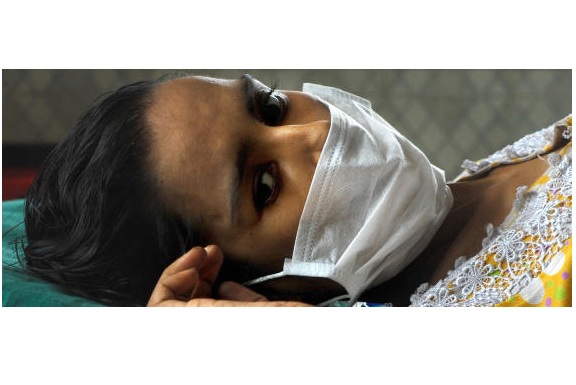
At the age of 16, I was diagnosed with multidrug-resistant tuberculosis (MDR-TB). At the time, the upper and lower lobes of my lungs had decayed. After receiving MDR-TB medication for six years I was advised to undergo a surgery in which I had a 1% chance of survival. The process of treatment had left my family distraught. Throughout my journey of fighting the disease, I witnessed numerous social, economic and psychological challenges.
The stigma associated with the disease leads to the individual facing societal disapproval. When patients are diagnosed with stigmatised diseases such as TB, the fear of the social and economic consequences following diagnosis can make them reluctant to seek and complete medical care.
With India bearing one-third of the world's tuberculosis burden, the myths and the stigma revolving around the disease and its treatment have to be addressed to improve TB control. Every year, 2.3 million Indians get infected with this disease. About 3 lakh of those don't make it. Patients with TB often experience rejection and social isolation. Lack of knowledge about the disease, coupled with fear of being ostracised, results in persons with TB overlooking their symptoms and failing to receive appropriate treatment--a stumbling block in the control of the disease.
A community's beliefs and norms about a disease and the resulting stigma can substantially impact the health of the patient. Lack of awareness can lead people to believe that TB is incurable and that the drugs for treatment can harm the patient. In some communities it has been found that people consider TB to be caused due to a curse or even witchcraft. Such myths and discrimination associated with the disease can mean people with TB symptoms delay seeking help, making it much more likely that they will become seriously ill and infect others. Stigma also makes patients reluctant to stick to their course of treatment. Incomplete treatment is one of the reasons for the emergence of drug-resistant TB which is even more difficult and expensive to treat. The public is misinformed about the modes of transmission of the disease and believe that TB is hereditary or spreads in ways similar to those by which HIV/AIDS spreads, such as unsafe sex practices. The belief that TB is transmitted through handshaking and sharing food with an infected person causes the patient to keep his/her condition undisclosed for fear of being shunned, even by their own family members.
The principal effect of stigma is the social isolation of patients, even by family members and friends. Patients with TB can develop a low self-esteem and clinical depression, which may even lead to suicide. I vividly remember this one patient who climbed out of bed and jumped out of the window in front of my eyes. Patients often isolate themselves to avoid infecting others and to avoid uncomfortable situations. Being either a patient or a recovered patient is likely to affect employment and employment prospects. In many cases unmarried women often find it difficult to get married due to discrimination by prospective husbands and in-laws. Married women may be abandoned by their spouse because they have TB or if a history of the disease is subsequently revealed. The multiple causes of this discrimination will require several interventions to tailor the social system of stigmatisation.
In the community, the issue can be addressed by basic awareness and working together to bust some of the myths mentioned above. Social support also acts as an essential coping mechanism, which is vital for the recovery of the patient. Being a TB patient, I have been fortunate to have the support of my family and my husband, who even after knowing about my disease accepted me as his partner. One's family plays a significant role in easing the pain caused by the disease.
The stigma related to TB still remains a problem and we need to supplement our efforts in communication and social mobilisation for reducing this problem. This will pay dividends towards effective TB control and to help patients battle the disease.
I was fortunate I had my family by my side. But not everyone is that lucky. As someone once said, Alone we can do so little. Together we can do much. TB is a battle we need to fight together - it is not one that can be fought in isolation. The sooner we realise that, half the battle will be won.
Source: The Huffington Post